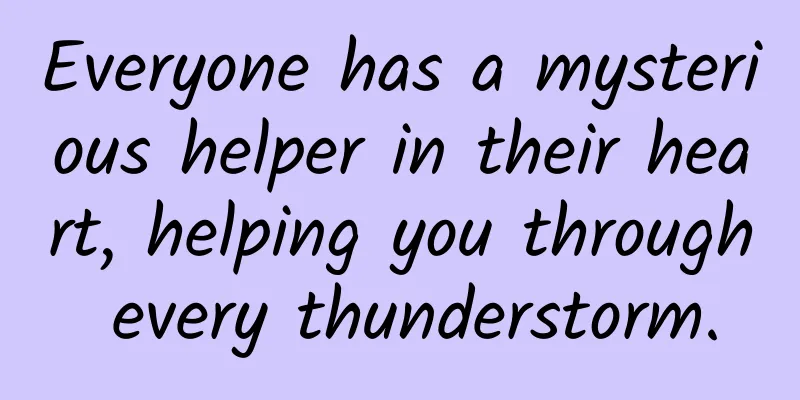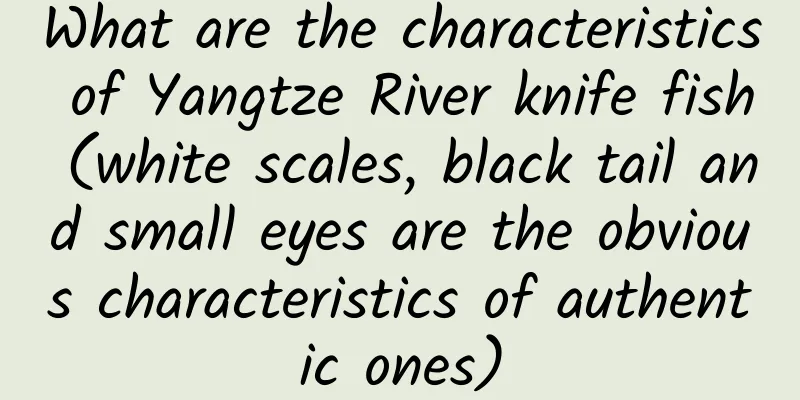Everyone has a mysterious helper in their heart, helping you through every thunderstorm.

|
"I don't think I'll ever be happy again" is the sigh of almost everyone who has experienced a bolt from the blue. Sometimes the energy of frustration is really too strong - from small things like breaking up, failing an exam, being fired, to big things like accidents, illness, and death of a family member - it seems that it will deprive all happiness at that point in time, and how to deal with the negative vortex that follows, it seems that the only solution is to "wait for time to pass". But in fact, perhaps we are often a little stronger than we think - don't get me wrong, this article is not about sharing inspirational stories, but a serious popular science chicken soup article (no). Our cognitive system always has various ways to deal with setbacks, or in other words, it makes us feel better when we can't solve the problem. Life always brings us different surprises one after another. But as the saying goes, human beings are magical animals after all, and they can just withstand what life throws at us. Although natural disasters are preventable, But we are always much stronger than we think. Christopher Boyce, a researcher at the University of Stirling in the UK, tracked the life satisfaction of 9,570 unemployed people within four years after they became unemployed. The study found that although people's life satisfaction dropped significantly after experiencing such a painful blow as unemployment, the decline in life satisfaction was significantly alleviated in the following four years, and satisfaction began to gradually recover. Next, Dr. Boyce and his colleagues analyzed the impact of a more negative life experience than unemployment—injury leading to disability—on people’s life satisfaction. In this follow-up study of 11,680 people, they obtained similar results as unemployment: although disability initially had a serious impact on life satisfaction, it only took 4 years for their life satisfaction to gradually return to a level close to that before disability. Contrary to what most people think, despite experiencing all kinds of ups and downs in life, people will quickly adapt to the new living conditions. We are stronger than we think. This actually comes from the psychological immune system, which processes the negative emotions brought by setbacks at an unconscious level that people are not aware of. Timothy Wilson, a psychology professor at the University of Virginia, and Daniel Gilbert, a psychology professor at Harvard University, first proposed the concept of the "psychological immune system": they believe that although people consciously overestimate the severity and duration of frustration, at an unconscious level, the psychological immune system helps people rationally understand the frustration that occurs, make positive attributions to their own behavior, reconcile conflicting thoughts and behaviors, and help restore self-esteem and happiness. At the same time, it can also enable us to focus on other positive things to gain positive emotions. What helps us to be strong may also be “escape” A strong self-protection mechanism is our strong psychological defense line, which helps us adjust quickly after setbacks and keep looking forward. There is a special type of protection mechanism that can even "foresee" setbacks before they occur. However, the core of this mechanism is not very positive, but similar to the "escape mentality" that has been criticized. One of the characteristics of human beings is that they can predict the future, and plan and adjust their current behavior and thoughts based on the predicted future. Similarly, using this planning ability, if we predict that the possibility of failure in the future is relatively high, we are likely to adjust our behavior and expectations for the future in advance to protect our future selves. In this way, even if we really fail in the future, we will not feel too sad. In the 1970s, psychologist Steven Berglas discovered that when faced with a goal that people subjectively believe is difficult to achieve, they will protect themselves from the impact of failure by consciously or unconsciously reducing their current efforts toward the goal, or even taking actions that are completely detrimental to achieving the goal. Professor Berglas calls this phenomenon self-handicapping. The cost of this "behavioral avoidance" is an objective increase in the possibility of failure, but at least people can avoid subjective negative emotions - because there is a reason for failure: "It's not that I'm not good enough or capable enough, but that I didn't work hard enough and didn't use my 100% potential." In addition to adjusting one's own behavior, there is another psychological mechanism for adapting to failure in advance - reducing expectations of the goal. The impact of this psychological mechanism is much smaller than the "escape mentality". It only requires changing attitudes and not engaging in truly harmful behavior. As the saying goes, "the grapes are sour when you can't eat them", this psychological phenomenon is commonly known as the "sour grapes effect". Hallgeir Sjåstad, a professor at the Norwegian School of Economics and Management, verified the regulatory mechanism of the sour grapes effect through experiments. In the experiment, participants were randomly assigned to two good/bad feedback groups and took the same intelligence test. After the test, participants in the good group were told that their performance was in the top 20% of all participants, while participants in the bad group were told that their performance was in the bottom 20%. Next, the subjects were told that they would take another test in the future, and the experimental task was to ask them to estimate how much pleasure they would gain if they scored high in the future test. The results showed that compared with the subjects who received positive feedback, the group of participants who initially learned that they were in the worst 20% predicted lower "pleasure and pride of high scores." In other words, after learning that they are likely to fail in the future, people will adjust their cognition and attitude towards their goals, making themselves feel that they will not be so happy even if they succeed, thereby reducing the attractiveness of achieving success in the future. The advantage of this kind of escape is that people can face unknown challenges with the mentality of "even if I really fail in the future, I haven't lost that much", thereby protecting themselves from the impact of negative emotions. But this is just people's expectations of the future. If they really get high scores on the test, will the sour grapes effect reduce the happiness people feel? Professor Shesta found that there was no such weakening: even participants who had lowered their expectations for the future before the test were as happy as others when they actually scored top on the actual test, and were much happier than they had predicted they would be. From this point of view, at least in terms of emotion regulation, the sour grapes effect seems to be beneficial and harmless. It only prevents us from being disturbed by the negative emotions of potential failure, but does not affect the positive emotions after actual success. It can be said to be very considerate. The “psychological immune system” and the “sour grapes effect” What are you serving? "Self" is a very important concept and a guideline for our lives. If the self is threatened, we will take action to eliminate or avoid the threat. If the self collapses, people will collapse and lose motivation. After being criticized by the boss or teacher, we will be listless and depressed, which is also because the self is hurt. A hurt self is not conducive to our actions. When people are sad, their first reaction is: "I don't want to do anything" or "I just want to lie down." Professor Gilbert believes that one of the main driving forces of people's behavior is to seek and maintain a positive self-image. In the face of possible future failures and the threat of failure to our self-evaluation, in order to avoid being devalued, we tend to devalue our goals and protect ourselves. In other words, when personal failure occurs, one way to protect a positive self-awareness is to deny the emotional relevance of future achievements. Sour grapes is not only a self-protection mechanism, it can also help us shift our focus to more achievable goals. In economist terms, it saves the "opportunity cost" of working towards a goal. However, is the sour grapes effect really a completely positive mechanism? The fox in Aesop's fable thought that the grapes that could not be eaten were sour because the grapes hanging in the air were beyond the fox's reach after trying, which made "eating the grapes" an "uncontrollable event". In fact, most of the difficult goals in reality have more or less possibility of being achieved, rather than being completely uncontrollable. Professor Shesta also believes that compared to "completely leaving everything to fate", "trying hard and trying a little bit" has its benefits. In further research, he found that although the sour grapes effect has a positive enough effect on coping with failure, those who have stronger goal intentions will have a smaller sour grapes effect, and even a "sweet grapes effect" - overestimating the happiness that achieving the goal will bring to themselves. This overestimation will make them put in more effort to achieve that goal, and it is this extra effort that helps them increase the possibility of actually achieving their goals, forming a positive feedback loop. After all, even if our expectations are not met, we have a strong psychological immune system to back us up, so what is there to be afraid of? References [1 ]Boyce, CJ, Wood, AM, & Brown, GD (2010). The dark side of conscientiousness: Conscientious people experience greater drops in life satisfaction following unemployment. Journal of Research in Personality, 44(4), 535-539. [2] Boyce, CJ, & Wood, AM (2011). Personality prior to disability determines adaptation: Agreeable individuals recover lost life satisfaction faster and more completely. Psychological science, 22(11), 1397-1402. [3] Miloyan, B., & Suddendorf, T. (2015). Feelings of the future. Trends in cognitive sciences, 19(4), 196-200. [4] Sjåstad, H., Baumeister, RF, & Ent, M. (2020). Greener grass or sour grapes? How people value future goals after initial failure. Journal of Experimental Social Psychology, 88, 103965. [5] Gilbert, DT, Pinel, EC, Wilson, TD, Blumberg, SJ, & Wheatley, TP (1998). Immune neglect: A source of durability bias in affective forecasting. Journal of Personality and Social Psychology, 75(3), 617–638. Author: Ji Xiaodier Editor: YeYeYe |
<<: Folic acid supplementation, things you should know when preparing for pregnancy
>>: What kind of plant is Clivia? How long can Clivia bloom?
Recommend
What happens after a blood vessel is ligated?
Blood vessels supply organs with oxygen and nutri...
Can pregnant women use Centella asiatica?
Taking medicine for pregnant women has always bee...
Causes of brown menstrual discharge
Brown vaginal discharge during menstruation is a ...
Causes of amenorrhea
For women, if amenorrhea occurs before the age of...
Routine examination of leucorrhea with white blood cells 3
For most women, gynecological diseases are a majo...
Experts talk about eye health for children and adolescents: Bathing your eyes in the sun gives your children a clear future
"Preventing and controlling myopia among chi...
Women, don't be shy, five symptoms of private parts indicate "big trouble"
A woman's private parts are not always peacef...
Counterpoint: iPhone 15 series will occupy the top three best-selling mobile phones in the world in Q3 2024
Research organization Counterpoint Research has r...
How many days after a miscarriage can I go out?
If you have just had an abortion, do not go out f...
What to do if you have a corpus luteum cyst in early pregnancy
Pregnancy is a major event in a woman's life,...
What is hyperprolactinemia?
Hyperprolactinuria is generally caused by excessi...
How can women replenish qi and nourish blood?
Qi and blood are very important for a person, esp...
What happens when you are about a week pregnant?
After a woman becomes pregnant, she will experien...
Why does menstruation discharge something like meat?
Normal women will have menstruation every month. ...
What should girls eat to make their breasts bigger?
Nowadays, women not only have very high requireme...









